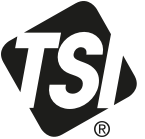The Advancement of Google Search: From Keywords to AI-Powered Answers
Launching in its 1998 debut, Google Search has transitioned from a fundamental keyword detector into a adaptive, AI-driven answer system. In its infancy, Google’s achievement was PageRank, which positioned pages according to the standard and count of inbound links. This guided the web past keyword stuffing for content that acquired trust and citations.
As the internet ballooned and mobile devices proliferated, search practices adapted. Google introduced universal search to merge results (press, photographs, streams) and in time spotlighted mobile-first indexing to mirror how people in fact scan. Voice queries employing Google Now and soon after Google Assistant compelled the system to analyze everyday, context-rich questions contrary to pithy keyword strings.
The subsequent jump was machine learning. With RankBrain, Google embarked on analyzing at one time unprecedented queries and user meaning. BERT enhanced this by understanding the intricacy of natural language—grammatical elements, background, and correlations between words—so results more effectively mirrored what people were seeking, not just what they queried. MUM amplified understanding throughout languages and types, giving the ability to the engine to combine associated ideas and media types in more developed ways.
Nowadays, generative AI is reimagining the results page. Tests like AI Overviews merge information from many sources to give pithy, appropriate answers, repeatedly coupled with citations and downstream suggestions. This shrinks the need to access different links to collect an understanding, while even then conducting users to deeper resources when they aim to explore.
For users, this revolution implies swifter, more refined answers. For professionals and businesses, it prizes meat, innovation, and simplicity beyond shortcuts. Down the road, foresee search to become ever more multimodal—intuitively unifying text, images, and video—and more personalized, adapting to wishes and tasks. The voyage from keywords to AI-powered answers is at its core about shifting search from locating pages to solving problems.
« result431 – Copy (2) – Copy result129 »
 CxA certification is open to independent industry professionals who meet all education and experience prerequisites and implement commissioning processes in new and existing buildings.
CxA certification is open to independent industry professionals who meet all education and experience prerequisites and implement commissioning processes in new and existing buildings. The Energy Management Process Seminar is designed to help candidates understand the energy management process and how it can be applied and serves as the final preparation for the Energy Management Professional (EMP) exam.
The Energy Management Process Seminar is designed to help candidates understand the energy management process and how it can be applied and serves as the final preparation for the Energy Management Professional (EMP) exam.













